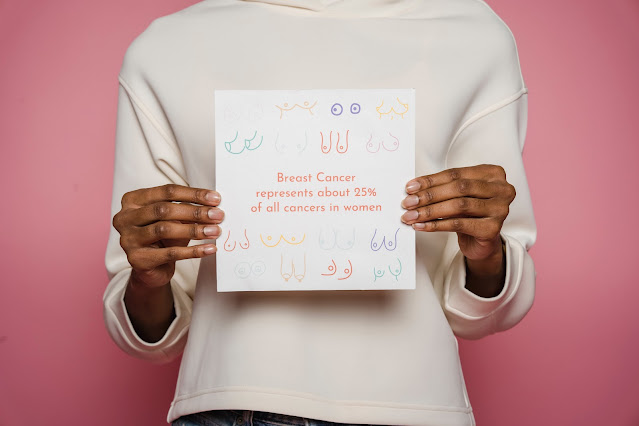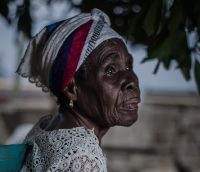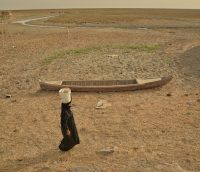by Safiyah Salawu Ibrahim
On October 27, 2022, Shades of Us Storytelling Initiative for African People (Shades of Us) attended the Love Your Lemons Webinar, an event organised by the Medicaid Foundation in Abuja during a week-long event geared towards raising breast cancer awareness. The goal was to raise awareness about breast cancer and to encourage women across all age groups to have regular visits to the hospital because early detection of cancer is vital to its management.
Shades of Us is constantly raising awareness about cancer using our digital media platforms. We have used fiction to promote the awareness of breast cancer and are in preliminary stages of developing a film about cervical cancer. This ties into the Sustainable Development Goal (SDG) target 3.3 – ensure a reduction of mortality from non-communicable diseases – which is one of our adopted goals.
The webinar was anchored by Dr. Chito Nwana of Tabitha Medical Center, Abuja, and hosted by Her Excellency, Dr. Zainab Shinkafi-Bagudu, the Founder of Medicaid Foundation.
Dr Zainab opened the event by explaining some major symptoms of breast cancer. They include:
A lump in the breast or around the armpit.
Abnormal or foul smelling discharge from the nipples.
Thickening or swelling of a part of the breast.
Irritation or dimpling of breast skin (orange skin).
Soreness or flaky skin in the nipple area or the breast.
Pulling or retraction of the nipple or pain in the nipple area/areola.
While breast cancer is sometimes found after symptoms appear, many women with breast cancer have no symptoms. This is why regular breast cancer screening is so important. Different tests can be used to look for and diagnose breast cancer. If the doctor finds an area of concern on a screening test , or if symptoms are present that could mean breast cancer, more tests need to be carried out.
Screening and Tests
Breast Self-Examination: This is a method of self-examination using the pads of one’s fingers on the left hand to gently rub around the right breast, making sure to cover the entire breast area and armpit. Using light, medium, and firm pressure, squeeze the nipple, check for discharge and lumps. Repeat these steps for the left breast.
Mammogram: Mammograms can be used to look for breast cancer, either as a screening test in women without symptoms or in women who have symptoms that might be from cancer. A mammogram can often find or detect breast cancer early, when it is small and even before a lump can be felt. This is when it’s likely to be easiest to treat. Mammograms can often show abnormal areas in the breast. They can’t tell for sure if an abnormal area is cancer, but they can help health care providers decide if more testing is needed.
Breast Ultrasound: Ultrasound is not normally used as a routine screening test for breast cancer. But it can be useful for looking at some breast changes. Ultrasound can be especially helpful in women with dense breast tissue, which can make it hard to see abnormal areas on mammograms.
Cancer Care in Nigeria
Medicaid foundation is not only raising awareness but is also doing a lot of advocacy for cancer care to be reformed in Nigeria. Working with policy makers to ensure cancer care and treatment is included in the annual national budget. A round of chemotherapy in the National Hospital goes for almost One Million Naira, which is too expensive for the average Nigerian. However, many Federal and State healthcare facilities do not have the equipment to diagnose and manage cancer. The absence of credible and inclusive health insurance companies also contribute to the high cost of cancer treatment.
While the American government has ventured into high-end, cutting edge research for cancer and related clinicals, it is quite unfortunate that screening is still the trending cancer topic in Nigeria. This alone has created a gap in the effectiveness of cancer care in Nigeria.
Dr. Zainab further urged that with the ongoing global research on cancer, black people should be included in clinical trials. This is to better understand the kind of treatments, drugs and doses that are suitable for black people while treating and managing cancer so that we can have the right precision.
Dr. Chito encouraged the attendees to not only be listeners but to also be messengers to spread awareness in our local communities about breast care and screening. When cancer is detected early, it is cheaper to treat and manage. The more advanced the cancer becomes, the more expensive the treatment becomes as well. She further explained that a black woman’s breast is usually dense and it is difficult to detect abnormalities without a mammogram or ultrasound. This calls for a need to advance cancer care in Nigeria, and certain technologies like a 3D Mammogram that can capture the breast from angles, need to be in our healthcare facilities on all levels. It begs reiterating that the major advantage of advancing diagnosis is early detection of cancer.
Aside from equipment and technology, it is no news that Nigeria has a shortage of medical professionals. There is a huge gap between cancer patients and oncologists. Most doctors who end up diagnosing cancer are mostly general practitioners who lack the skill and experience to handle cancer cases. More often than not, they end up misdiagnosing or mistreating their patients. So Nigeria lacks the quality of cancer care when it comes to personnel as well.
Conclusion
There is an urgent need for Primary Healthcare Centres to also create awareness and have the necessary equipment for routine screening for women in local communities. The government also needs to invest in improving the healthcare system on all levels to ensure accessible quality healthcare. More research on cancer needs to be carried out in Nigeria and the urgent rehabilitation of the National Cancer Centre in Abuja.
Civil societies and Non-Governmental Organizations (NGOs) need to shift from only raising awareness to working with policy makers and government institutions. This is to indirectly put pressure on the government to put the necessary infrastructure in place to improve the quality of healthcare for cancer patients.
More awareness on breast cancer needs to be created at the grass root level. This will involve traditional and religious leaders engaging members of their communities to regular counselling, routine screening and other relevant activities.
Women need to be more aware of their bodies and their genetic history. This will give individuals a better understanding of the need to get routine screening and indulge in other self-care practices.






